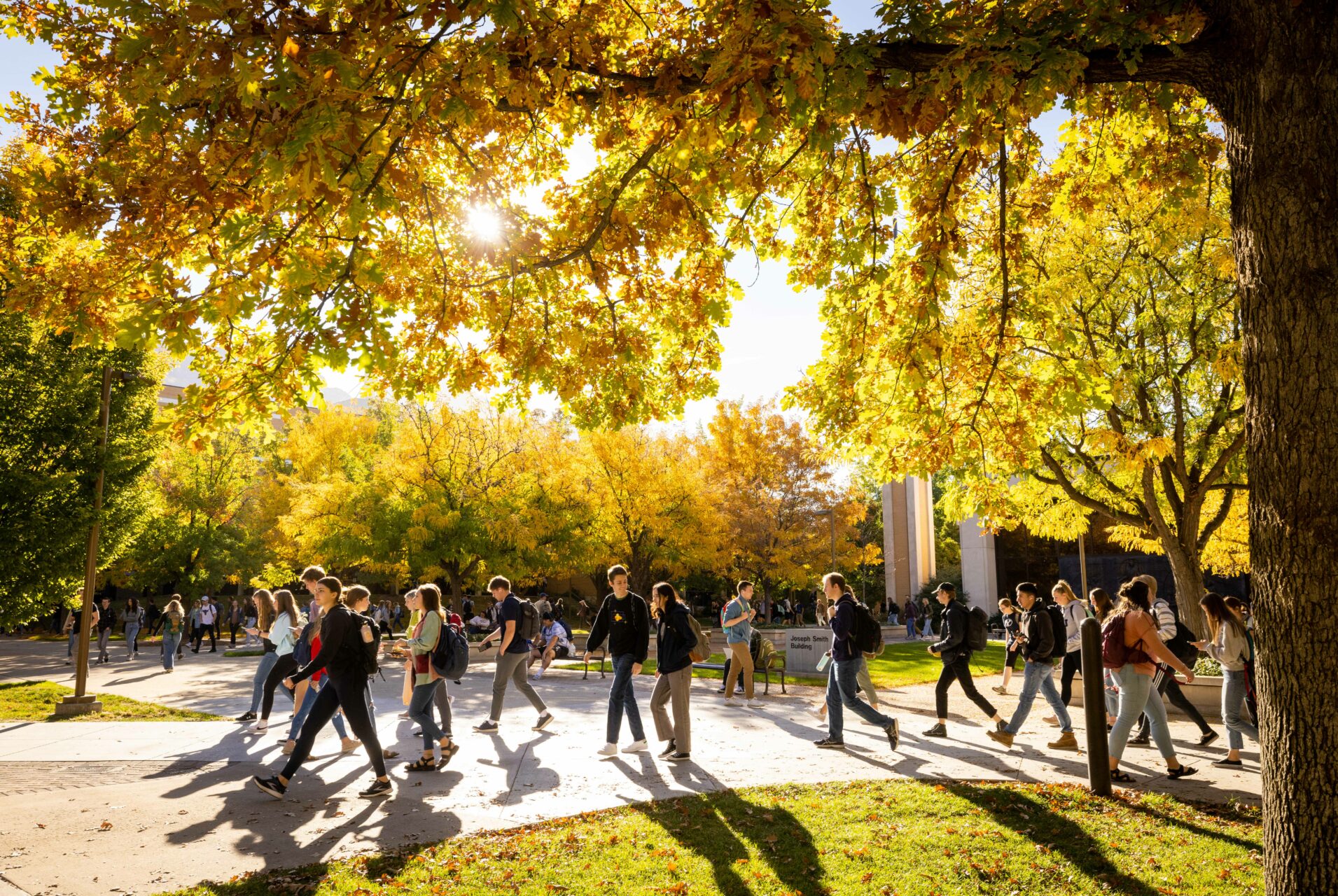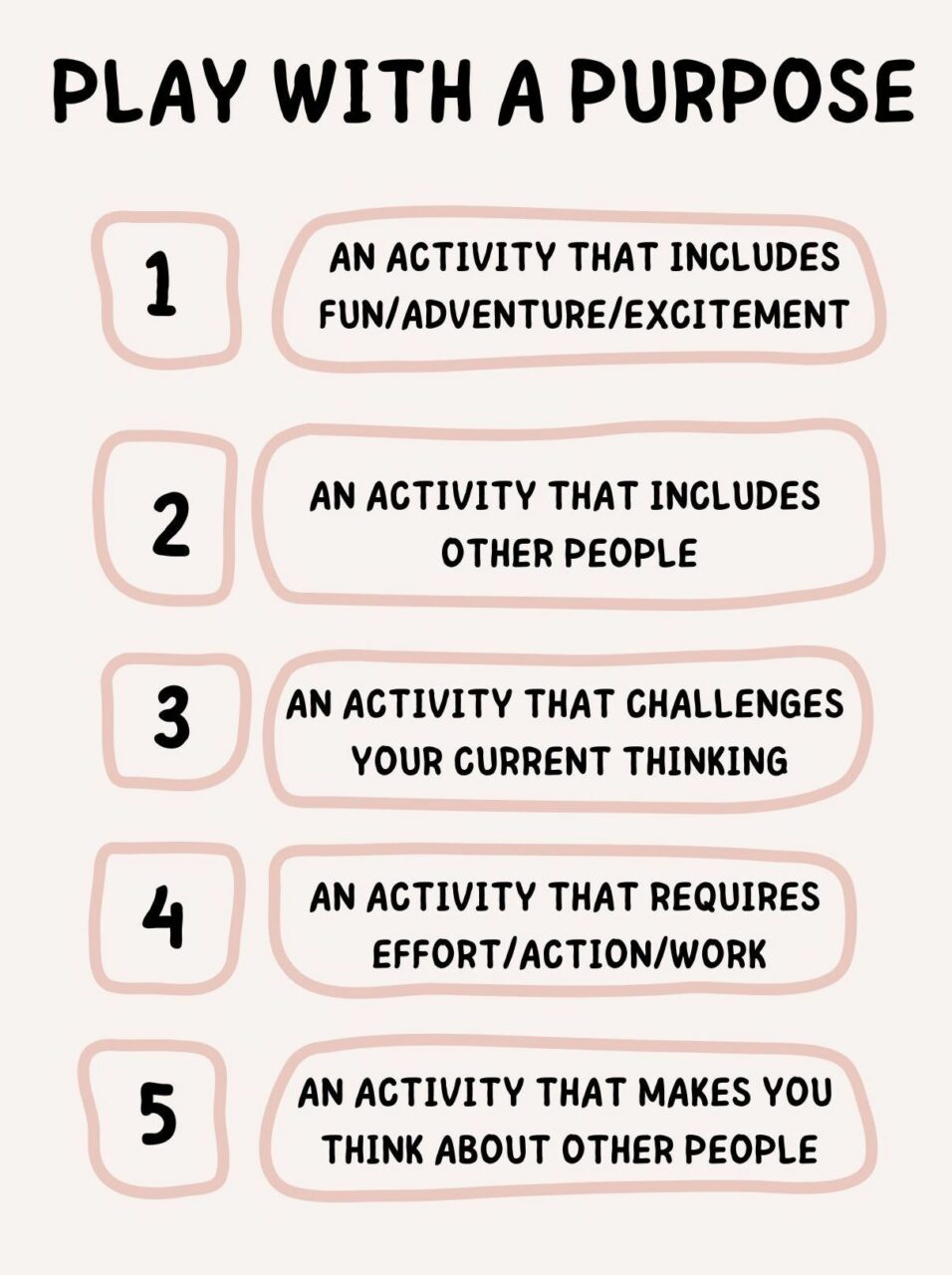
Research shows the ages between 18-29, referred to by developmental psychologists as the “emerging adulthood” years, are characterized by high rates of mental and emotional challenges.
In a study conducted by the World Health Organization, researchers discovered that 35% of the full-time college participants involved in the study screened positive for at least one of the six common lifetime mental disorders in the Diagnostic and Statistic Manual of Mental Disorders and 31% screened positive for at least one 12-month DSM–IV disorder.
The study also said adults 18-29 have the highest rates of depression and anxiety and are among the most likely to be involved in deadly car accidents and victims of homicide, with ages 12-34 also being at the highest risk for sexual assault.
Bishop Shane Plummer presides over a young single adult congregation of The Church of Jesus Christ of Latter-day Saints in Fort Worth, Texas. Anxiety, social unrest and pressure to find one’s life path are common difficulties he sees in his YSA congregation.
As a religious leader, Bishop Plummer works to help struggling young adults realize their potential. By helping people understand they are children of God, he believes emerging adults will come to know what their purpose is and that God can help them find peace through the storms and tribulations of life.
“I know that probably sounds too elementary or primary, but my entire faith is founded on that,” Bishop Plummer said. “Sadness, anxiety and fear are very human emotions we all feel and will continue to feel throughout our lives. But the answer is always the same: Jesus Christ. He is the light and life of the world and can help us overcome anything. If I place my faith and trust in Him, I can have peace, even when the storms of life are raging.”
The difficulties Bishop Plummer has noticed among his congregation are the same challenges psychologist Jeffrey Jensen Arnett observed among the age group. Arnett coined the term “emerging adulthood” in 2000 as he began to recognize the uniqueness of this third decade of life in the modern era.
Emerging adulthood is a relatively recent development as “demographic trends towards longer time in education and late age to enter into marriage and of parenthood have led to the rise of a new life stage at ages 18–29 years,” Arnett said in a 2014 study. Young adults are getting married, having children and entering stable, long-term work later in life. This transitionary period can be exhilarating, characterized by career, romantic and idea exploration. However, emerging adulthood is also a period of “heightened instability,” as defined in Arnett’s research, and is responsible for creating anxiety and uncertainty among young adults.
The professor
Dr. Larry Nelson became intrigued by the concept of emerging adulthood after becoming colleagues and friends with the father of emerging adulthood, Jeffrey Jensen Arnett. Now a professor at the BYU School of Family Life, Nelson dedicates much of his research to exploring the distinctive third decade of young adults’ lives and how to minimize its difficulties.
Some societal expectations of young adults have steadily shifted over the past half-century, with many 18-29 year olds putting off long-term responsibilities and Dr. Nelson said he believes this delay of responsibility and accountability comes at a cost to young adults.
“Society has stripped young adults of the scaffolding or support they used to have,” Nelson said. “Emerging adults’ brains aren’t completely formed until age 25, so providing structure is really helpful in keeping young people safe and doing well. They’ve been given this time period with an immense amount of autonomy, but with very little structure, support and an underdeveloped brain. That makes for a really bad combination.”
Although the strains of this era can seem grim, Nelson said there are things students and others in this period of life can do to minimize the more unfortunate aspects of emerging adulthood.
“Young adults need to take advantage of the support at their disposal or create the structure they need”, Nelson said. He encourages students that are members of the Church to participate in their wards, an easy way to find structure in a chaotic time.
“We have wards, we have callings, we have the opportunity to serve missions. We have accountability through ministering to other people. The problem is so many young people in our community aren’t taking advantage of the structure,” Nelson said.
Nelson also identified other various activities such as joining a club on campus, participating in research and internships as additional ways to create structure in ones life.
Young people can also become active in the community and focus on donating their time to service, a sure way to avoid the mind trap of self-centeredness that can be especially prevalent during this time of life, Nelson said.
While finding and creating structure is crucial in a young adult’s life, Nelson acknowledges that fun should also be a component of this time. He advises students and all young adults to participate in activities that include other people. Nelson has identified five pieces of criteria or guidelines for emerging adults to follow as they engage in what he calls “play with a purpose.”

“It’s so important to create networks and develop your social skills so you feel less lonely. Do something that challenges your current thinking,” Nelson said. “Place activities in your life that require work, effort and action. Incorporate activities that make you think about other people.”
The survivor
When 23-year-old Jordan Kettring was raped nearly a year and a half ago, she was not sure what was next. The weeks after were filled with a steady stream of difficult emotions as she felt the effects of post-traumatic stress disorder settle over her life. Everything would trigger her fear response, especially church services with so many men attending. PTSD soon led to a depression that Kettring had tried to stave off.
“I was doing everything — I was going outside, I was working out every morning, I was getting up, I had a scheduled routine, I was talking to a therapist and I was still so incredibly miserable. I saw no hope, no joy. I didn’t realize depression could feel that way until I experienced it,” Kettring said.
Kettring said when she was in the depths of her depression, her circle of family and close friends kept her going. She had one friend who would consistently tell her, “You’re going to therapy. You are waking up today.”
Despite having a great support system, Kettring still found herself in a place of darkness. She began attending group therapy, working with The Refuge, and counseling with her bishop who recommended individual therapy. Eventually, her therapist recommended trying anti-depressants, and Kettring said going on medication at this time saved her life.
“For a time, I needed medication to survive,” Kettring said. “Medication can be rough. It can take you through a rocky slope, especially depending on your genetics, but it was a game-changer for me. I wouldn’t have survived without medication. Eventually, I was able to find different types of therapies that resonated with me and worked for me better, but at the time I needed medication just to survive.”
Now a photographer and advocate for sexual assault awareness, Kettring is using her experience to help other victims know they are not alone and there is hope.
“You have to do what you have to do to regain the world; to live again,” Kettring said. “It can get better, and you have to force yourself to believe that until it does.”
The student
When BYU student Regan Hoppe graduated high school in 2020, nothing looked how she had imagined. There was no prom or emotional graduation ceremony, yet she was suddenly done with high school and deemed an adult. As she entered BYU still grappling with the lack of closure and emotional hardship of her senior year, Hoppe found herself struggling with feelings of anxiety.
“I struggle with a lot of anxiety when it comes to meeting new people. Going on first dates is especially anxiety-inducing,” Hoppe said. “I’m also trying to find my purpose in life, and that can be anxiety-inducing.
Hoppe also said although she planned to study nursing, she had a crisis and wondered if it was really what she wanted to do.
“There was a lot of imposter syndrome and feeling like, even though I got accepted into the program, I don’t belong there. I’m not good enough to be here,” Hoppe said.
Opening up to her roommates and talking through her feelings has helped Hoppe feel less isolated, but she also turns to journaling and walks outside when she is feeling lonely. She takes advantage of the Counseling and Psychological Services therapy on campus and regularly uses the wellness app Sanvello which is free through BYU. In addition to her self-care practices, realizing she is not the only person with feelings of anxiety has also encouraged her.

“Anxiety is easier to deal with once you realize you’re not the only one dealing with it and when you reach out to people and start to utilize the resources available,” Hoppe said. “It seems like everyone knows what they’re doing but in reality, nobody knows what they’re doing. We’re all going through this experience together, but separately. We don’t have to be going through it separately.”
Instead of becoming overwhelmed by the idea of the future, Hoppe has learned to focus on small, daily goals that help get her from one day to the next.
“You can have long-term goals, but you have to understand that things are going to change along the way and you might not always get there. Small goals will try to get you where you’re wanting to go and allow you to reward yourself for your small victories and accomplishments,” Hoppe said.
The therapist
Dr. Christy Kane is a clinical mental health counselor based in Highland. In addition to operating her practice, Dr. Kane also travels around the country speaking in conferences and sharing her passion for mental health wellness.
When it comes to emerging adulthood, Dr. Kane said the abundance of options at young adults’ disposal can sometimes be paralyzing.
“A lot of young adults are feeling overwhelmed. We live in a global economy and we have more choices and information than ever before, which creates paralysis for young people. There is the question of, ‘Which way should I go?’ And the fear of, ‘What if I make the wrong decision?'” Dr. Kane said.
In addition to information overload, or possibly as a result of such, Dr. Kane shared that young adults now are dealing with higher rates of anxiety, depression and bipolar disorder. Doctors have also been seeing a rise in personality disorders. For the age group of 18-24, suicide is the leading cause of death.
“People in this age group need to become very aware of the choices they are making to empower and improve their mental health and decrease some of the negative influences they are constantly surrounded by,” Dr. Kane said. “The information they are feeding their brain needs to be a very conscious choice.”
Dr. Kane encourages young adults to get back to the basics of eating healthy, getting enough sleep, being emotionally connected with themselves and others, minimizing screen time and focusing on the present in order to help mitigate the difficulties of emerging adulthood. She also encourages those who are religious to embrace their faith and cites research that has shown those with a foundation of faith are not as dramatically impacted by mental health difficulties and are able to recover from setbacks more quickly.

While some planning for the future is necessary, Dr. Kane wants young adults to stay focused on the moment.
“Learn to live in the now and recognize that anxiety, depression and sadness are all part of life. It’s important to learn how to navigate through those feelings. Young adults need to be proactive in their mental health journey and recognize and seek treatment sooner than later when they recognize feelings of depression, anxiety or other mental health challenges,” Dr. Kane said.
Going forward
In his article, Arnett said that for most young people in industrialized countries, the years from the late teens through the twenties are years of profound change and importance. He writes that when adults later consider the most important events in their lives, they most often name events that took place during this period. Replete with formative and influential moments, this era is not without its fair share of hardship. Those struggling to navigate this paradoxical time of excitement and anxiety from 18-29 may take comfort in knowing they are not alone. While each individual’s path through the emerging adulthood era is unique, many of the feelings experienced during this time are shared by many.
Creating structure, finding community and asking for help when the burdens of life grow heavy are several ways emerging adults can ease the difficulties of this life stage. Despite being inarguably difficult, this third decade of life is ripe with potential and opportunity.
“I work with young people in the emerging adulthood age group every day,” Nelson said. “It’s tough to watch them flounder, but I just love watching them flourish.”




